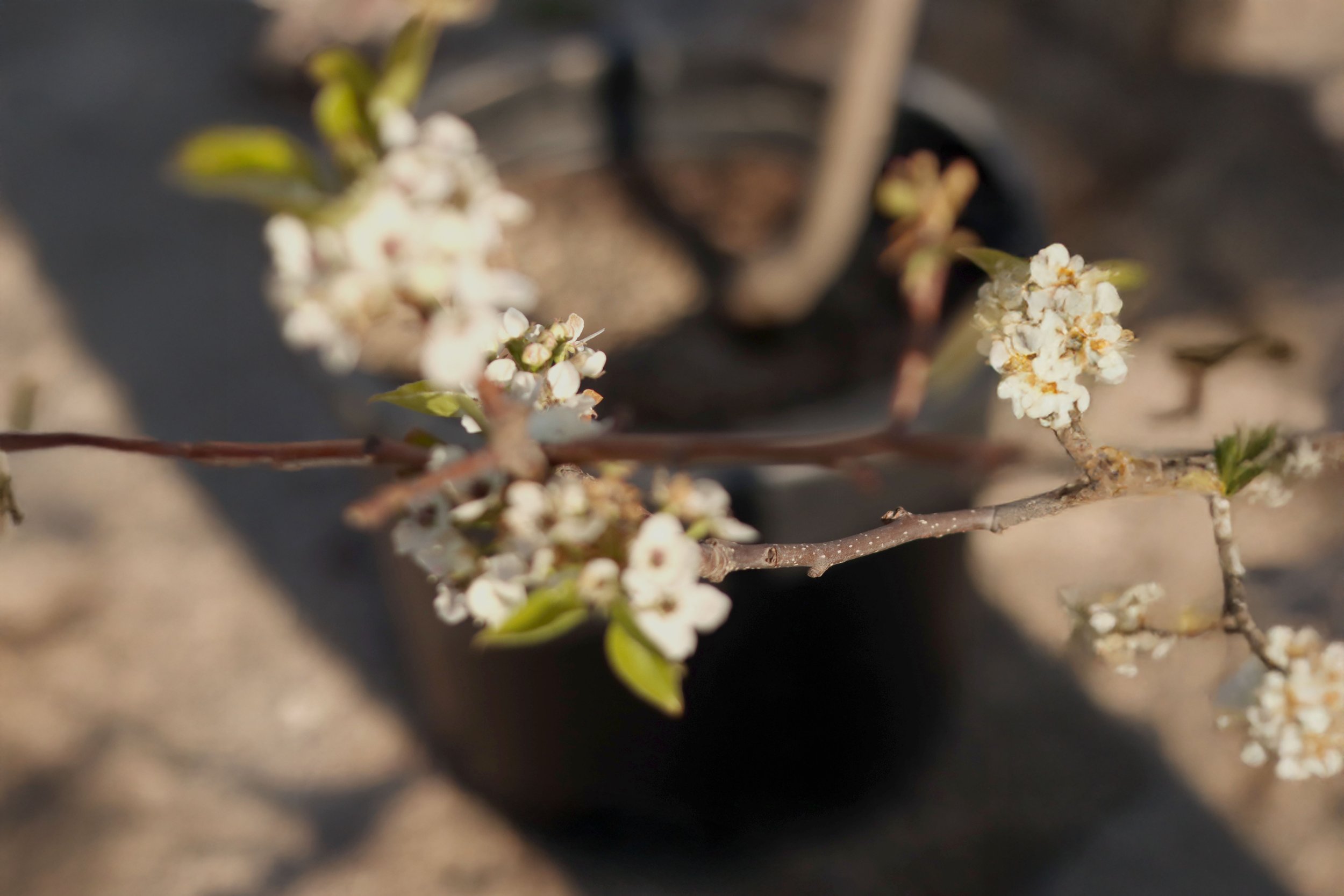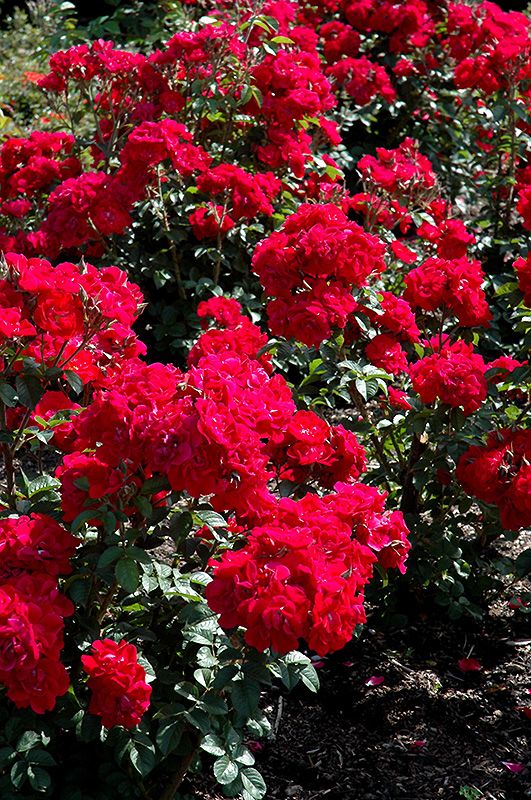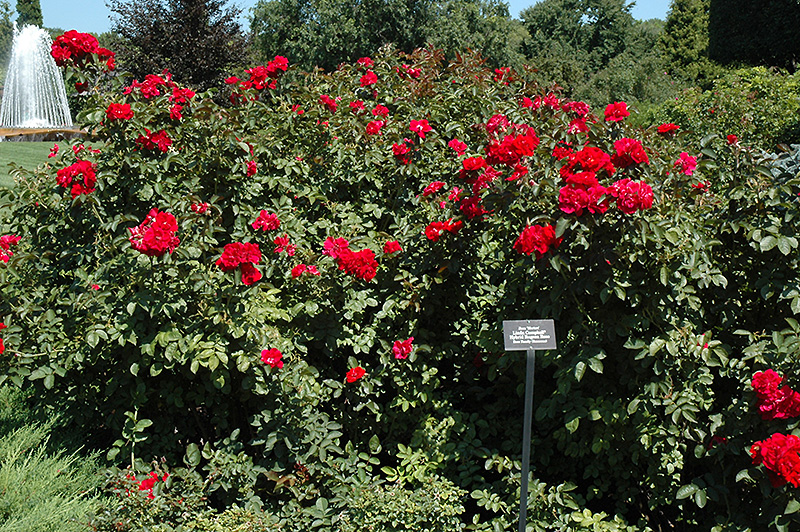
PLANT SEARCH
Height: 6 feet
Spread: 8 feet
Sunlight:
![]()
Hardiness Zone: 2
Description:
An old-fashioned hardy shrub rose, covered in semi-double red flowers in early summer, repeat-blooming; tall, upright arching habit with some suckering, hardy and resistant to disease, makes a great specimen shrub; needs full sun and well-drained soil
Ornamental Features
Linda Campbell Rose features showy lightly-scented semi-double red flowers with yellow eyes at the ends of the branches from early summer to mid fall. The flowers are excellent for cutting. The fruits are showy orange hips carried in abundance from early to late fall. It has dark green deciduous foliage which emerges burgundy in spring. The glossy oval compound leaves turn an outstanding scarlet in the fall. The spiny purple bark adds an interesting dimension to the landscape.
Landscape Attributes
Linda Campbell Rose is a dense multi-stemmed deciduous shrub with a more or less rounded form. Its average texture blends into the landscape, but can be balanced by one or two finer or coarser trees or shrubs for an effective composition.
This is a high maintenance shrub that will require regular care and upkeep, and is best pruned in late winter once the threat of extreme cold has passed. It is a good choice for attracting bees to your yard. Gardeners should be aware of the following characteristic(s) that may warrant special consideration;
- Suckering
- Invasive
- Disease
- Spiny
Linda Campbell Rose is recommended for the following landscape applications;
- Accent
- Mass Planting
- Hedges/Screening
- General Garden Use
Planting & Growing
Linda Campbell Rose will grow to be about 6 feet tall at maturity, with a spread of 8 feet. It tends to fill out right to the ground and therefore doesn't necessarily require facer plants in front, and is suitable for planting under power lines. It grows at a fast rate, and under ideal conditions can be expected to live for approximately 25 years.
This shrub should only be grown in full sunlight. It does best in average to evenly moist conditions, but will not tolerate standing water. It is not particular as to soil type or pH, and is able to handle environmental salt. It is highly tolerant of urban pollution and will even thrive in inner city environments. This particular variety is an interspecific hybrid.


